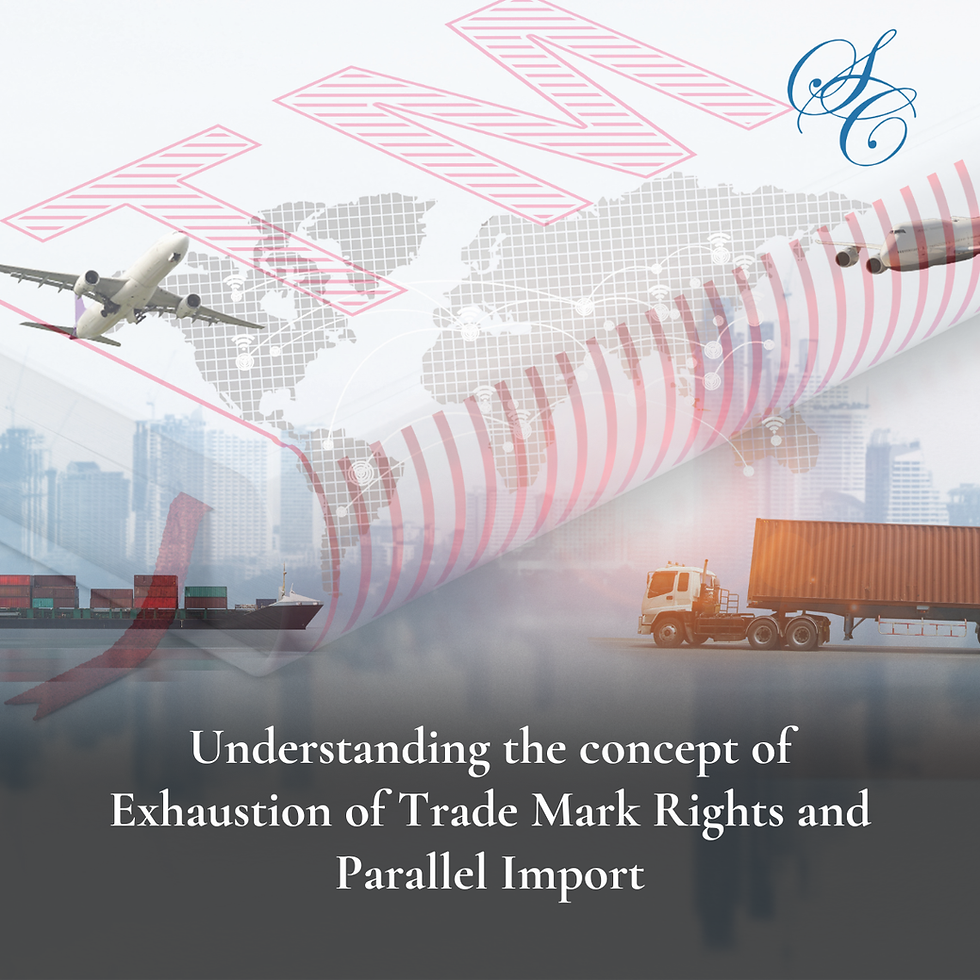Enforcement of Anti-Suit Injunction of Foreign Court Denied in an Anti-Anti-Suit Injunction
- Sarwajeet Singh
- May 24, 2021
- 3 min read
Our Associate, Nikita Lakhani discusses “Enforcement of Anti-Suit Injunction of Foreign Court Denied in an Anti-Anti-Suit Injunction”
Recently the Delhi High Court, in Interdigital Technology Corporation & Ors. v. Xiaomi Corporation & Ors., granted an anti- anti-suit injunction, directing Xiaomi to indemnify Interdigital against any penalty imposed by the Wuhan Immediate People’s Court, where the Defendant sued InterDigital over the royalty rate-setting and license dispute of Standard Essential Patents (“SEP”).
The case of the plaintiff was that the defendants had filed a suit for determination of rate according to FRAND terms for the grant of licenses of certain SEPs, held by the plaintiff and registered in their name when, the defendants manufactured cellular handsets with 3G and 4G technology which contains SEP’s as held by the Plaintiff. As such, the plaintiffs have not sought an absolute injunction, against the defendants, from using the SEPs held by the plaintiffs, but have sought for an injunction in the event the defendants are not willing to obtain licences, from the plaintiffs, for use of the said SEPs, at FRAND royalty rates. The Wuhan Court had directed Interdigital to withdraw the application in relation to its patent infringement claim before the Delhi High Court or else had to pay a penalty of RMB 1 million yuan per day.
First, the court clarified that it was not sitting in appeal against the order passed by the Wuhan Court. However, the plaintiff alleged that it had the authority to injunct the impugned order dated September 23, 2020 passed by the Wuhan Court and in stating so relied on numerous prior rulings which held that if the grant of anti-suit injunction would directly interfere with proceedings in a foreign court, the Indian court must slow down. However, grant of injunction of the order by the Wuhan Court would not adversely impact the complaint filed by defendants in Wuhan.
The single bench of Justice C. Hari Shankar concluded that it is impermissible for a Court in one sovereign jurisdiction to injunct the party before it from pursuing its cause against infringement of its intellectual property before another sovereign jurisdiction where such court is the only court competent to adjudicate upon the claim of infringement, unless the continuation of infringement proceedings are vexatious or oppressive to the proceedings before the former injuncting court. It was observed that an anti-enforcement injunction is imperative in this case in view of the rights of the citizen of our country to legal redressal being sacred and fundamental and cannot be sacrificed as also emphasized by Our Constitution in granting “justice, social, economic and political” to every citizen. The court also pointed that the proceedings were not transparent in this case as no copy of anti-suit injunction application, filed by the defendants in the Wuhan Court, was ever furnished by them to the plaintiff. Further, even if the notice was issued to the plaintiff, the grant of the anti-suit injunction to the defendant would not be justified.
The court observed that the cause of action arose in India as the proceedings before it were of perceived infringement of six specific Indian patents. The court observed that this aspect was “completely overlooked” by the Wuhan Court while observing that the plaintiff was trying to exclude the jurisdiction of Wuhan Court by initiating proceedings before the Hon’ble Court.
On the basis of the above, the Delhi High Court restrained the defendants from enforcing the order dated September 23, 2020 by the Wuhan Court against the plaintiffs.
Further, the Court went on to conclude that if the Wuhan Court takes action against the plaintiff towards the deposit of RMB 1 million per day, the defendant would have to deposit the same before the Delhi High Court and the plaintiff shall be entitled, on such deposit, to withdraw the said amount, or have been transferred to the account of the plaintiffs.




Comments